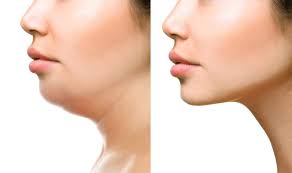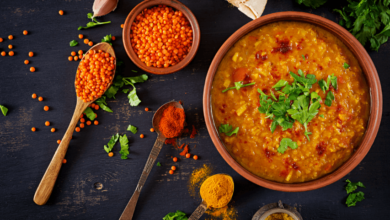Types of Sports Nutrition: Fueling Your Body for Peak Performance

Imagine yourself on the field, seconds before the starting whistle blows. Your heart is pounding, adrenaline is pumping, and you need that extra surge of energy to dominate the game. This is where sports nutrition comes in. It’s the science of using food and drinks to fuel your body for peak performance, recovery, and overall health and best collagens.
Think of your body like a high-performance car. Just like a car needs the right fuel to run smoothly, your body needs the right nutrients to perform at its best. By understanding the types of sports nutrition and making smart choices, you can give yourself a competitive edge and achieve your athletic goals.
Nutrition and Exercise:
When you exercise, your body burns energy for fuel. This energy comes from three main sources: carbohydrates, protein, and fat. These are called macronutrients, and they play crucial roles:
Carbohydrates: The primary source of readily available energy for your muscles. Think whole grains, fruits, and vegetables.
Protein: Essential for building and repairing muscle tissue, crucial for recovery. Sources include lean meat, poultry, fish, eggs, dairy, and plant-based options like beans and lentils.
Fat: Provides sustained energy, especially during longer workouts. Opt for healthy fats like those found in nuts, seeds, avocado, and olive oil.
Your body also needs micronutrients like vitamins and minerals for various functions, from regulating energy levels to supporting immune function.
Exercise increases your body’s demand for all these nutrients. The type and amount of nutrients you need will depend on several factors, including:
- The type of sport you participate in: Endurance athletes like marathon runners have different needs than powerlifters.
- The intensity and duration of your exercise: High-intensity workouts require more readily available energy from carbohydrates.
- Your individual training goals: Are you aiming to build muscle, lose weight, or improve endurance?
The Athlete’s Diet:
Building a balanced plate is the foundation of a healthy athlete’s diet. Here’s a breakdown of what your plate should look like:
- Half of your plate: Filled with colorful fruits and vegetables for essential vitamins, minerals, and fiber.
- A quarter of your plate: Lean protein sources to support muscle growth and repair.
- A quarter of your plate: Whole grains or starchy vegetables for sustained energy.
Don’t forget about healthy fats! Include them in moderation throughout the day to provide satiety and support hormone function.
Remember, your diet needs may change throughout your training cycle. You may need to adjust your food intake during periods of intense training or competition compared to rest days. Tracking your food intake and working with a registered dietitian can help you personalize your diet for optimal performance.
Fueling Your Body Before, During, and After Exercise:
Now that you understand the foundation of sports nutrition, let’s explore how to fuel your body throughout your training journey:
Pre-Event Meal:
The pre-event meal is crucial for providing your body with sustained energy for competition. Ideally, you should eat 2-3 hours before your event. Here’s what to keep in mind:
- Timing is key: Aim for easily digestible carbohydrates and a moderate amount of protein to avoid stomach upset.
- Carbohydrate choices: Opt for whole-wheat toast with banana slices, oatmeal with berries, or low-fat yogurt with granola.
- Don’t forget hydration: Drink plenty of water in the hours leading up to your event to stay well-hydrated.
Eating During Exercise:
For longer workouts (lasting over an hour), consuming small amounts of carbohydrates during exercise can help maintain energy levels and prevent fatigue. Here are some options:
- For moderate-intensity exercise: A sports drink, banana, or energy bar can provide a quick energy boost.
- For high-intensity exercise: Gels or chews specifically designed for athletes offer concentrated carbohydrates for fast absorption.
Remember: Experiment with different options during training to find what works best for your body and prevents stomach discomfort.
Eating After Exercise:
The post-workout window (up to two hours after exercise) is a critical time for recovery. Here’s how to optimize this period:
- Focus on a combination of carbohydrates and protein: This helps replenish glycogen stores in your muscles and supports muscle repair.
- Good choices: A recovery drink with carbohydrates and protein, a chicken breast with brown rice and vegetables, or a smoothie with fruit, yogurt, and protein powder.
- Rehydrate: Replenish lost fluids through water or a sports drink containing electrolytes.
Using Nutritional Supplements:
Nutritional supplements can be a helpful addition to your diet, but they shouldn’t replace a healthy eating plan. Some common sports supplements include:
- Protein powder: Useful for athletes who struggle to meet their protein needs through diet alone.
- Creatine: May enhance performance in high-intensity exercise.
- Caffeine: Can improve alertness and focus during exercise.
Important Note: Always consult with a doctor or registered dietitian before taking any supplements. They can assess your individual needs and recommend safe and appropriate options.
Basic Sports Nutrition Advice for Everyone:
Here are some simple tips to get you started with sports nutrition:
Plan your meals and snacks: Avoid last-minute scrambling and ensure you have the right fuel on hand.
Stay hydrated: Drink plenty of water throughout the day, even when you’re not thirsty.
Don’t skip meals: Aim for regular meals and snacks to keep your energy levels stable.
Read food labels: Be mindful of sugar content and choose whole foods over processed options.
Listen to your body: Pay attention to hunger and satiety cues and adjust your intake accordingly.
Don’t deprive yourself: Allow yourself occasional treats in moderation. A balanced approach is key!
Conclusion:
Sports nutrition is a powerful tool for athletes of all levels to optimize performance, improve recovery, and achieve their fitness goals. Remember, there’s no one-size-fits-all approach. Experiment, find what works best for you, and don’t hesitate to seek professional guidance from a registered dietitian for a personalized plan. With the right fuel and knowledge, you can unlock your full athletic potential and reach your peak performance!




